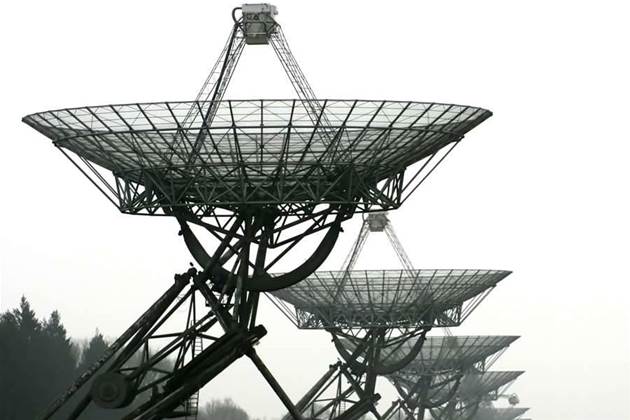The Communications Alliance has established a new working group to provide a "strong, coordination industry voice" on policy development around NBN Co's long-term satellite services.

It would, among other things, investigate concerns the backhaul component of NBN Co’s satellit eplans could become cost-prohibitive for some service providers.
The satellite services working group, set to meet officially for the first time next month, will seek to sway some of the ongoing policy development impacting the satellite industry and specifically the NBN.
The working group counts representatives from Optus, Telstra, SES New Skies and satellite builder Thales among its members.
It is also expected to pit NBN Co against vocal opponent Newsat in some of the group's sub-committees.
Communications Alliance chief executive John Stanton told iTnews that the make-up and number of sub-committees working on various policies and codes had not yet been formalised.
But committee member Reg Coutts, a satellite consultant who helped consider tenders for the Federal Government’s $4.7 billion fibre-to-the-node NBN initiative, said he planned to lobby for changes to rules surrounding the backhaul component of the long-term satellite service under the NBN.
The planned make-up of the long-term service, which would link approximately ten ground stations with the 121 points of interconnect making up the national network, could push up backhaul costs for providing satellite services on the network.
The current IPSTAR satellite solution used in NBN Co’s interim service to rural Australia operates with two ground stations aggregated back to a single point of interconnect in Sydney.
“When you think of satellite customers across Australia, the current rules are more oriented toward terrestrial delivery so we’re going to be working through a few scenarios there,” Coutts said.
Other areas believed under consideration by the committee include spectrum planning for satellite services and the final location of ground stations in urban areas.
Stanton said the group hoped to provide input on “efficiencies in the way the satellites are deployed”.
“With any infrastructure project of this type there is often a need to keep examining your assumptions along the way,” Stanton said.
The group is yet to court potential member Space Systems/Loral, which last month won the $620 million contract to build NBN Co’s two long-term satellites.
Hughes or ViaSat, which are both competing for the equally hefty contract to build the earth stations for NBN Co, are also not on the committee members list.
Stanton said the membership was “not necessarily complete yet”.
The long-term satellites are planned for operation from 2015 and will operate on Ka-band frequencies with combined bandwidth of 90 Gbps to service the four percent of Australia - or roughly 200,000 premises - not covered by fibre-to-the-home rollout or fixed wireless services.
The Communciations Alliance has previously coordinated several working groups in the nascent stages of the National Broadband Network developing codes and standards for areas including wholesale services, end-user migration and early stage deployments.
They were initially led by current NBN Co chief technology officer, Gary McLaren.


_(23).jpg&h=140&w=231&c=1&s=0)


_(28).jpg&h=140&w=231&c=1&s=0)





 iTnews Benchmark Awards 2026
iTnews Benchmark Awards 2026
 iTnews Executive Retreat - Security Leaders Edition
iTnews Executive Retreat - Security Leaders Edition
 iTnews Cloud Covered Breakfast Summit
iTnews Cloud Covered Breakfast Summit
 The 2026 iAwards
The 2026 iAwards












_(1).jpg&h=140&w=231&c=1&s=0)



